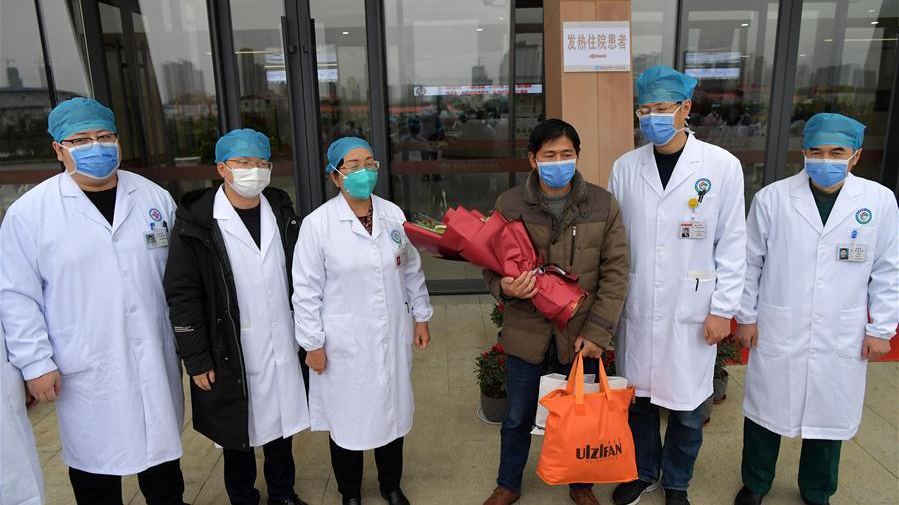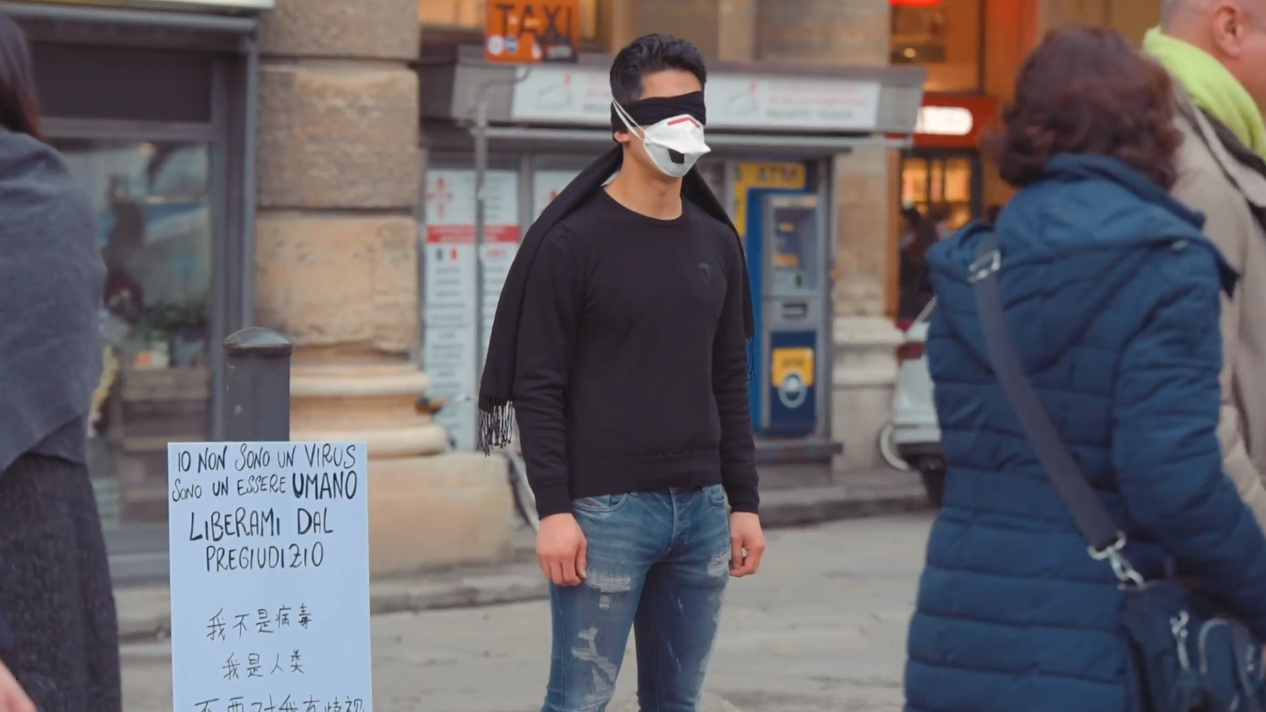
A recovered patient is discharged from the No. 1 Hospital affiliated to Nanchang University in Nanchang, east China's Jiangxi Province, January 27, 2020. /Xinhua
A recovered patient is discharged from the No. 1 Hospital affiliated to Nanchang University in Nanchang, east China's Jiangxi Province, January 27, 2020. /Xinhua
Editor's note: Daryl Guppy is a national board member of the Australia China Business Council. He is the Australian representative with the Silk Road Chambers of International Commerce and an international financial market technical analysis expert. The article reflects the author's opinions, and not necessarily the views of CGTN.
COVID-19 means its crunch time for your business relationship with China and your Chinese colleagues. How you respond determines how your China business will grow after this crisis has passed. How you respond determines how welcome your business is in China and how effectively you can expand your networks.
At a national level, some countries like Australia and Singapore have reacted by closing borders. Direct flights from China are stopped and Chinese passport holders are denied entry. These border closures are in direct contradiction to World Health Organization (WHO) advice. Australia, like some other Western countries, has been more nationally focussed on "rescue" missions to airlift their citizens from Wuhan. While these airlifts have also taken the opportunity to carry donated medical supplies, the limited flights are mainly about evacuation of citizens.
It's a policy that sells well to a domestic audience, but it also stokes an underlying racism that is often reinforced by media coverage. The Australians "rescued" were at first quarantined 5,300 kilometers away from Sydney in an offshore camp on Christmas Island, a place that was previously used to incarcerate refugees seeking asylum in Australia. This unnecessarily heightened the perceptions that COVID-19 was an infection of disastrous proportions. Later groups were quarantined on the mainland in Australia's most remote capital city, Darwin, 3,000 kilometers from Sydney.
The Europeans and South Koreans are scrambling to handle the spread of COVID-19. Rather than developing sound management plans by tapping into Chinese expertise, as recommended by the WHO, it appears some countries have been caught flat-footed. While it may be more difficult for countries with more fractious political systems to implement strict quarantine management, it is not impossible.
Unfortunately, the national reaction in some countries feeds both xenophobia and racism. So the key question becomes not "What is the national response?" but "What is our individual response?". This personal response moves beyond any national response or personal contribution to broader initiatives such as non-government mercy flights to deliver medical equipment.

Chinese-Italian Massimiliano Martigli Jiang stands for hours, blindfolded and wearing a face mask, next to a sign that says "I'm not a virus, I'm a human being: Eradicate the prejudice," in Florence, Italy, February 2, 2020. /Associazione Unione Giovani Italo Cinesi
Chinese-Italian Massimiliano Martigli Jiang stands for hours, blindfolded and wearing a face mask, next to a sign that says "I'm not a virus, I'm a human being: Eradicate the prejudice," in Florence, Italy, February 2, 2020. /Associazione Unione Giovani Italo Cinesi
It's commonly accepted that relationships are essential to developing business in China. Long lunches, numerous alcohol toasts and the elaborate gift-giving courtesies around business all attest to the importance of maintaining these relationships. But for many outside of China, these relationships seem to be lacking substance. Often, they are learned dance-steps, tolerated but without genuine meaning.
It takes a crisis like COVID-19 to stress-test the relationship. What will you do when you are asked to assist with sourcing medical equipment, masks, medical aprons and other items? An outright refusal to assist inflicts deep scars.
Have you enquired about the wellbeing of your key contacts and their families, or have your enquiries then shifted quickly to questions about the resumption of supply and trade for your business? Trade will resume, but it may not be on the same terms as before if your questions have revealed you have greater concerns about profits than about health.
Do you call this disease coronavirus or the Wuhan or China Flu? Your choice of terminology can inflict unintended damage on your future business because your Chinese partners are sensitive at this time to the underlying racism in the Western media coverage of the outbreak.
Compare and contrast the commentary you hear in the street and on Western social media with the chatter on WeChat. For your Chinese colleagues this is a national emergency and it is the duty of citizens to assist, to follow quarantine instructions and to avoid spreading rumors and misinformation. There is a clear sense of national unity and pride in the measures undertaken by Chinese authorities.
China's response to the COVID-19 is different to the response to the SARS outbreak. It is an uninvited test of political maturity. And yet, it has been greeted with border closures and racism despite the WHO saying these measures are both unnecessary and counterproductive. The China response stands in stark contrast to H1N1 swine flu which originated in the borderlands of the United States and Mexico, infecting more than 1,600,000 people in 214 countries with a 17 percent mortality rate leading to more than 284,000 deaths.
So, it's crunch time for your business relationship with China. If your relationship is tested and found to be Jiu Rou Peng You (酒肉朋友, or wine and meat friend), then you can expect it to be much more difficult to grow business back to pre-COVID-19 levels when the China recovers. Friends help friends, particularly in times of crisis. Every bit you contribute will be appreciated and remembered. You might not be able to do much, but every bit can count even when it starts just with a change in attitude and a genuine enquiry about the health and safety of your Chinese colleagues.
(Chongyang Institute for Financial Studies at Renmin University of China also contributed to this article.)
(If you want to contribute and have specific expertise, please contact us at opinions@cgtn.com.)